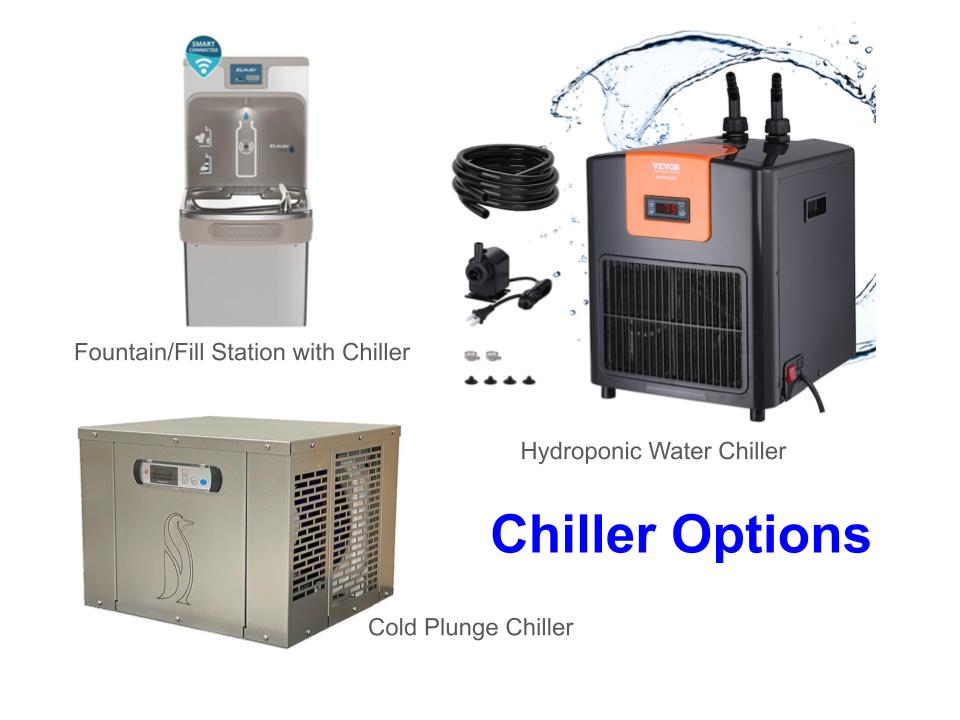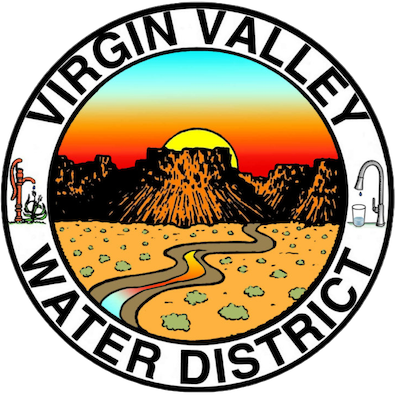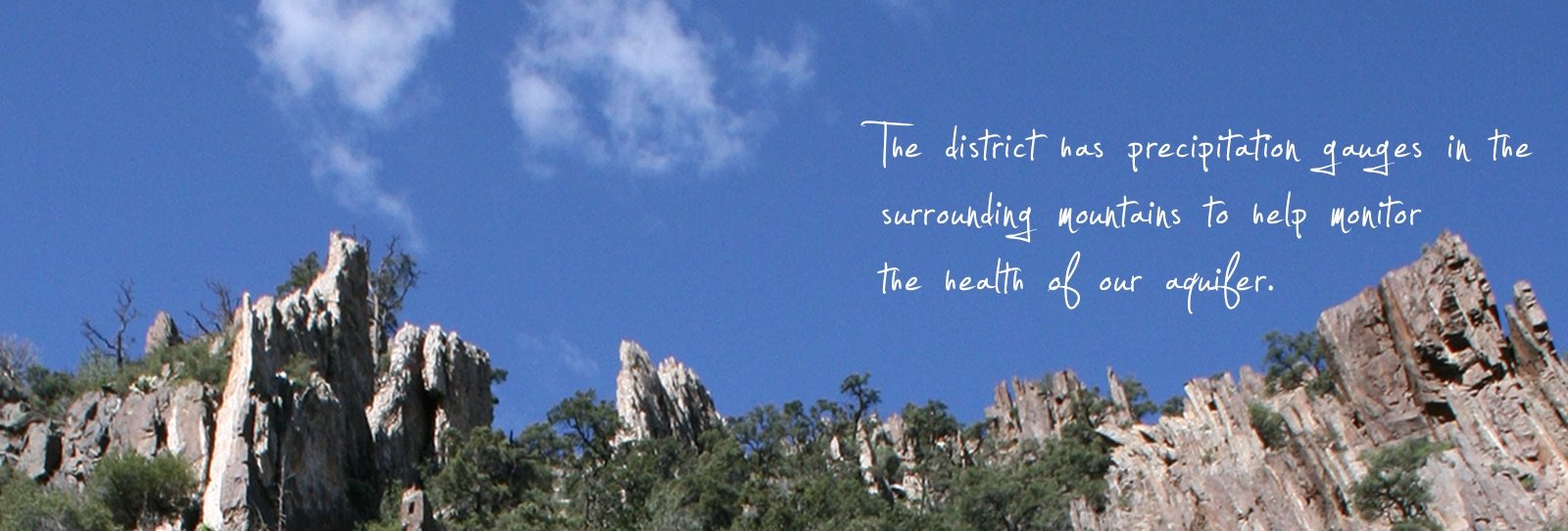Frequently Asked Questions
Late charges are assessed if your water bill is not paid by the due date. Read our Billing Policies for more information about how these charges are calculated.
Meters are read on the 20th day of every month.
The customer is responsible for leaks on the “Customer” side of the meter. Installment payments can be arranged for six months without late fees until the balance is paid. Contact our customer service team to make arrangements.
Customers with concerns or questions about their bill should contact the Virgin Valley Water District Office, and discuss it with a Customer Service Representative.
Members of the Board are elected by a plurality of the qualified electors of the district and take office upon qualification therefore the first Monday in January next following the member’s election or appointment, whichever is later, and leave office upon the first Monday in January next following the election or appointment of the member’s successor in office.
Vacancies in the Board of Directors shall be filled by appointment of the remaining members of the Board and if the Board fails, neglects or refuses to fill the vacancy within thirty (30) days after a vacancy occurs, the Board of County Commissioners of Clark County shall fill the vacancy. Each member appointed to hold office as a director shall hold office for a term of not to exceed two (2) years.
Requirements for service
Members of the board must reside in the district for at least six (6) months before his or her appointment or the election at which the member is elected and be a qualified elector of the district.
Regular meetings
- The District holds regular meetings on the first and third Tuesday of each month except on a legal holiday, when the regular meeting will be the day following the legal holiday. Meetings begin at 5:00 P.M., at the VVWD offices and continue until the business of the day shall be completed or until there shall be a recess to a further date. In the event there is not a sufficient amount of business to be conducted for two meetings a month, the General Manager reserves the right to cancel a meeting. Notices of cancellation shall be posted in accordance with the· requirements of Chapter 241 of the Nevada Revised Statutes known as the Nevada Open Meeting Law, as amended.
- There is an annual meeting of the Board of Directors on the first Tuesday of October every year at which time a report of the business transacted during the preceding year by the District, including a financial report.
Special Meetings
- Special meetings of the members of the Board of Directors may be called at any time by the president or at the written request of at least three (3) members of the said Board.
Yes. The public is invited to all public meetings of the board. Citizens wishing to speak during public participation are asked to state their name for the record and limit comments to a minimal duration. However, no action will be taken on any item until it is properly agendized.
The VVWD offices are accessible to the handicapped. With 24-hour advance request, efforts to provide for special assistance or accommodation will be undertaken. Phone 702-346-5731 to make your request.
Our water meets all drinking water standards and doesn’t require additional treatment beyond what it already receives; however the choice to use a home filtration system is yours to make. Home filtration products can reduce chlorine levels and water cloudiness, which some would prefer not to taste, smell or see. In some cases, these filtration products can also remove metals such as lead and copper that could dissolve in the water during contact with household plumbing. If you do decide to install and use a water-filtration system, it is important to follow the manufacturer’s maintenance specifications.
No. Hazardous materials such as oils and paint thinners disrupt the collection system and the treatment plant. The wastewater plant process cannot remove all hazardous chemicals, therefore, some may enter our water sources. The more polluted the water, the harder it is to clean, and the more expensive a process it becomes.
No, not without further treatment. In a kidney dialysis machine, the water used is brought into close contact with the patient’s blood. Thus, the quality requirements are far stricter than those for ordinary drinking water. Aluminum, fluoride, and chloramine are examples of substances that are not acceptable in water used for kidney dialysis. Kidney dialysis centers are kept informed about water quality and are able to give advice on this matter.
Yes. Many tests have shown that the amount of chlorine found in treated water is safe to drink. Chlorine is needed to maintain disinfection throughout the distribution system. The potential for water contamination when chlorine is not used, outweighs any long-term concerns.
The cloudy water is caused by tiny air bubbles in the water similar to the gas bubbles in beer and carbonated soft drinks. It is particularly noticeable in water taken directly from the tap. Within seconds, the bubbles rise to the top and are gone. This type of cloudiness occurs more often in the winter, when water temperature is colder, and does not indicate any problem with the water.
Official statement from Virgin Valley Water District regarding water use restrictions:
With most of our news coming out of Las Vegas, it is easy to have the misunderstanding that Southern Nevada Water District’s (SNWA) mandates and restrictions apply in the Virgin Valley. You may have seen advertising such as the following: “SNWA has mandatory restrictions on time of day, day of week and length of watering. Outdoor watering is limited to three days a week in the fall and the winter schedule is only one day a week. It goes back up in the spring starting March 1 to three days and during the summer months, water is permitted six days a week beginning May 1, but not between 11 a.m. to 7 p.m., the hottest times. Watering is never permitted on Sunday.”
The restrictions referenced are only enforced by Southern Nevada Water Authority for their service area and are NOT a statewide mandate. The SNWA’s area of responsibility is in the Las Vegas Valley, not in the Virgin Valley area. The Virgin Valley Water District (VVWD) has no mandatory restrictions regarding water use in place at this time. We do not have the same water source (Colorado River) as SNWA, and therefore are not under the same mandates for use of that water, nor are we experiencing the same level of scarcity as the Las Vegas area. Our water source, the aquifer below us, has maintained constant levels over the past several decades. Because of the plentiful water supply, and the fact that voluntary water conservation measures (desert landscaping, voluntary water conservation) have placed water usage in our area on par with many of the heavy-handed water conservation efforts in the southwest United States, VVWD has opted to encourage conservation through rate structure, and education, giving our customers the opportunity to make changes without mandates.
At VVWD, we do not like to see water wasted. While we have a different water source than SNWA, and no water use restrictions, we do not condone waste of any kind.
We are hopeful that we will receive cooperation from individuals, businesses, HOA’s, and landscape companies so we can work together to conserve without having to assess large fines that would be passed on to the members of the association or create draconian mandates. Rather we would like to reach a level of voluntary conservation that would satisfy our valleys’ water needs. If voluntary efforts aren’t enough, then future mandatory restrictions will likely be put in place.
First, a reminder about our water. OUR WATER IS …NATURALLY WARM! Our water supply currently comes from the hydrologic basin known as Basin 222, the lower Virgin River basin. The Water District draws the water from nine deep wells located throughout the valley. Depths of wells range from 640’ to 2,020’. Due to the subsurface geologic conditions, water temperature coming out of the ground is naturally warm at approximately 80 to 90 degrees Fahrenheit. Then it is stored in an above ground metal tank before being transported through our many water lines. Combine that with our high temperatures during summer months that heat the ground, the tanks and the water lines, and you might have trouble getting cold water from your tap from May until about October. The good news is this will save you money on your power bill from your water heater.
If this isn’t enough, and you need colder water than we can provide, there are a few options, but they can be costly.
The specific need for cooler water might help decide the method of cooling:
If you want cooler water in your pool or bath, ice is the cheapest method, though not the most convenient. It will cost about $3 a bag or make it yourself in your freezer. Then dump it where you need some cold.
If you need cooler water for a fish tank, hydroponic garden, or something similar that will be recirculated (this might work for your pool as well depending on the size), there are several options available from $350 up to $2000 or more. (Search Hydroponic Water Chiller) A Fountain feature for your pool can also cool the water a bit, but this does create more opportunity for evaporation, so you could use more water causing a higher water bill and lower water efficiency.
If you’re thirsty for a drink of cool water, you could keep a pitcher of water in the refrigerator, or your refrigerator might have a cold-water feature. If not, you could install a fountain or fill station, some of which come with a chiller feature. This will most likely run you $1500 to $3,000, and you might need a plumber to install it.
If you’re looking for a trendy cold plunge, this might cost a bit more. The chiller itself will range from $1000 to $4000+, not including the tank or tub. Also keep in mind that you will probably need to hire an electrician, because it will most likely need 230 v power and a plumber or HVAC specialist to install it.
If your washing machine’s “Cold” setting isn’t cold enough, you might be able to use the same type of chiller for your “cold Plunge” and hook it to your washer. The same costs would apply including electrician and plumber.
Overall, there are not a lot of options for cold water in the summer months here in our desert town, but there are benefits to living here as well. We save power and money by not using our water heaters as much during summer months. We rarely need to worry about frozen pipes in the winter and come October and November the weather will be so pleasant; you won’t even remember the warm water…Until next May!


